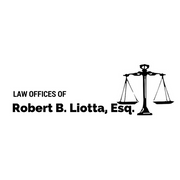
When a person passes on, their estate should be appropriately administered and closed by applicable state laws. If the deceased named a personal representative during estate planning, that person will be in charge of managing the estate their loved one left behind. Estate administration can be overwhelming for most, so here is an overview of what the process involves.
Understanding Estate Planning & Administration
What Does Estate Administration Mean?
Estate administration encompasses the settlement and management of an estate of someone who died. The process includes making an inventory of all estate assets, paying debts and taxes, and eventually distributing assets to heirs or beneficiaries. Although related to estate planning, estate administration is different because it’s carried out after death. An appointed personal representative or executor who is trusted to handle estate administration is typically specified in an estate plan’s will.
Why Would an Estate Administrator Be Needed?
If the probate court disapproves of the decedent’s choice for an executor, or if there is no will left behind, the court can appoint an estate administrator. Generally, a spouse is given priority, followed by the descendants. However, anyone can ask to be named as an administrator. Take note that the estate administrator should be someone capable of handling the significant role entrusted to them.
 Even though it is not legally required to have an attorney, it's beneficial to hire one because the tasks assigned to an administrator can be complicated. If you were named as the estate administrator, you could be held liable for decisions that you make or for your failure to fulfill your obligations.
Even though it is not legally required to have an attorney, it's beneficial to hire one because the tasks assigned to an administrator can be complicated. If you were named as the estate administrator, you could be held liable for decisions that you make or for your failure to fulfill your obligations.
How Is an Estate Administered?
The following are formalities that are typically followed before assets can be handed out to heirs and beneficiaries.
-
Probating the will or having an estate administrator chosen by the court
-
Sending heirs and beneficiaries notification of administrator appointment
-
Informing creditors about the estate administration
-
Filing an estate inventory
-
Opening a bank account for the estate
-
Paying estate debts
-
Taking care of claims
-
Selling properties and estate assets
-
Filing inheritance and federal estate tax returns
When all of these have been accomplished, and all remaining assets are properly distributed, the estate can then be formally closed.
When it comes to estate administration, trust the Law Offices Of Robert B. Liotta, Esq., in Lower Burrell, PA, to guide you. Attorney Robert Liotta has represented clients across Westmoreland, Allegheny, and Armstrong counties since 2000. He will help you establish an estate plan and discuss the administration process to ensure that your assets are properly divided among your beneficiaries. Call (724) 334-9870 for a consultation or visit his website to browse his estate planning experience.
About the Business
Have a question? Ask the experts!
Send your question

